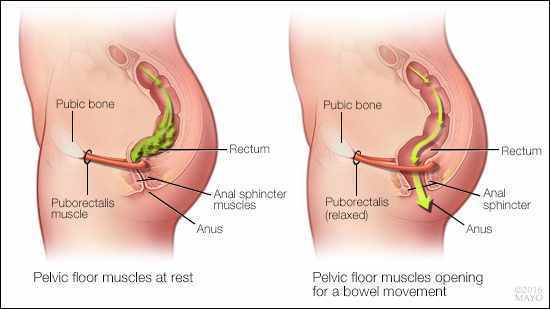Hi Momma!
Welcome to the wild world of pregnancy and postpartum!
Aren't you enjoying experiencing things that you never knew were "a thing"?
Some beautiful, some not-so beautiful....but all part of the wild and wonderful adventure of growing and birthing babies.
One FREQUENT complaint in pregnancy and early postpartum is digestion.
Physical changes to the shape of our bodies, babies encroaching on our abdominal contents, hormones, cravings, irregular sleep schedules and voracious appetites have us in many ways eating and living in a TOTALLY new and different way!
While it's COMPLETELY normal to experience changes in our elimination routines, e.g. diarrhea (read more here) and constipation (and here), we need to be aggressive in managing these issues if and when they persist!
Why?
Well during pregnancy your body contains a wonderful hormone called "relaxin". Relaxin plays a vital role in readying your musculoskeletal system for the MAJOR shape changes that are happening to your body.
It helps your muscles, ligaments, tissues and fascia to be stretchy and expand more easily than normal.
And then AFTER pregnancy if you are breastfeeding, estrogen levels remain low and this perpetuates this stretchy laxness as well.
This is all great and amazing for you and baby, but NOT SO GOOD if you are either frequently bearing down to eliminate bowel movements OR having diarrhea multiple times of day.
These repeated actions put extra strain on the pelvic floor and can cause it to stretch too much and loose it's tone, aka structural integrity necessary to hold up your core and hold in your pelvic organs.
Interestingly enough, pelvic position and pelvic floor tightness during and after pregnancy can contribute to the development of both diarrhea and constipation, so it can be a chicken/egg situation where we find ourselves asking, "Which came first, the pelvic floor dysfunction or the elimination trouble?"
But I digress....
This post is ONLY about how having persistent diarrhea or constipation during pregnancy or postpartum can NEGATIVELY impact your pelvic floor and what to do about it!
And it makes sense, since the gastrointestinal system and pelvic floor are neighbors!
Photo credit: https://www.huffingtonpost.com/entry/why-cant-i-poop_us_589b858fe4b0985224db5d1d
So what to do?
1. Well depending on the frequency and severity of these problems, you definitely want to talk to your OB or midwife about them and make sure they know what you are dealing with.
2. Get yourself a squatty potty. They are cheap, everyone should use them and they will get you in the perfect position to make going to the bathroom easier!
Lovesutras.com
3. Take a second look at your nutrition. When we are pregnant, we eat more because we are well....growing a baby. And then when we are postpartum we are healing from a 10 month long baby-growing experience, birth and now dealing with this new physically and emotionally-demanding responsibility and sleepless nights. We all need calories, good nutrition and proper hydration, especially if we are breastfeeding.
Hydration is super important when pregnant and even more so during breastfeeding for a number of reasons, including it's impact on stool formation! Not enough water means more compact stools that are challenging to eliminate, i.e. constipation.
Fiber is another thing we have too keep our eye on. Soluble fiber's job is to hold water and allow it to pass into the stool so that it moves more easily through the intestines. Insoluble fiber's job is to add bulk to the stool to help it move as well.
Sources of soluble fiber =beans, oats, oranges, flaxseeds, psyllium, peaches,
Sources insoluble fiber = veggies like broccoli, beets, sweet potatoes, kale, green beans, grains
If you are experiencing diarrhea or constipation, check you insoluble and soluble fiber intake!
Stools that are too hard probably would benefit from some soluble fiber and lots of hydration while runny stools need more bulk from insoluble fiber.
One thing to keep in mind is that inflammation or the gut due to stress or food sensitivities can also cause digestive irregularity.
I find that lots of folks suffer from diarrhea in response to dairy intake, particularly milk and often this can improve or become more of a problem during pregnancy. Thank you, hormones!
Consider tracking your food for a week to notice patterns in your bowel movements. If they happen at certain times of day or in response to certain foods, activities or maybe even stress?
4. Probiotics. Are they safe during pregnancy? The American Pregnancy Association states that there does not appear to be any risk to mom or baby based on current research.
I'm of the mind that since probiotics are a means to getting us the bacteria that we historically would be been exposed to naturally anyways, they are fine.
YOU JUST WANT to be sure that you trust the manufacturer and are getting a good, pure product that doesn't contain any fillers or unexplained additives.
You also want to start SLOWLY and take them with food, especially since your tummy might be a little sensitive.
Probiotics have been shown in the literature to stop or improve diarrhea.
**The vast majority of the published trials show a statistically significant benefit and moderate clinical benefit of a few, well-identified probiotic strains-mostly Lactobacillus GG and S. boulardii-in the treatment of acute watery diarrhea, and particularly those due to rotavirus. Such a beneficial effect results, on average, in a reduction of diarrhea duration of approximately 1 day. The effect is strain-dependent and dose-dependent.
And constipation!
**Bifidobacterium and Lactobacillus have been shown to be significantly less abundant in adult patients with constipation.
They can also help with other common complaints by common to pre and postpartum mommas!
acid reflux
yeast infections
bloating
food sensitivities
indigestion
abdominal cramping and stomach aches
5. Add or change supplements. Magnesium and vitamin C supplementation have been shown to help alleviate constipation, while iron supplements have been shown to cause it.
Check your prenatal vitamins and see if anyone online has complained about irregular bowel formation in response to your particular brand or formulation.
Even if your prenatal contain vitamin C and or magnesium you still might see improved bowel function when you take magnesium or vitamin C separately.
Magnesium citrate with calcium right before bed helps with sleep and will relax the muscles of the digestive system which eases elimination. Ask your doctor or midwife about which versions they recommend.
Vitamin C causes loose stools and helps with constipation as well. Consider boosting your vitamin C intake via food or ask your doctor or midwife about supplementation. It's also great for boosting the immune system.
I hope this helps!
Please share with any of the pre and postnatal women in your life and hit me up with any questions by commenting below or emailing me via the link below.
Thanks!!
Sarah Smith is a trainer, lifestyle coach and postnatal fitness specialist that specializes in helping women feel strong, confident and capable in their bodies!
Her specialties include kettlebells, gut health and optimization for fitness goals, pelvic floor health and function and making fitness fun! Check her out on social media here or email her!






